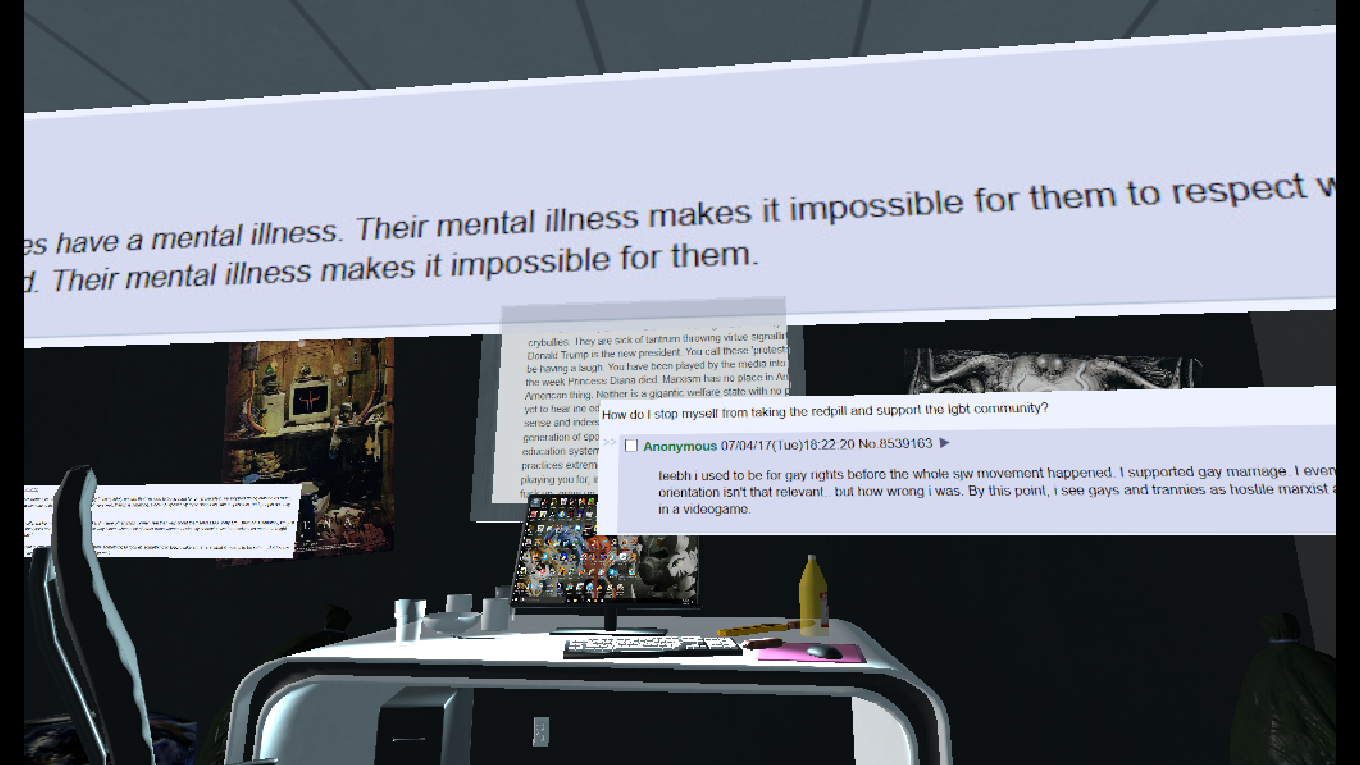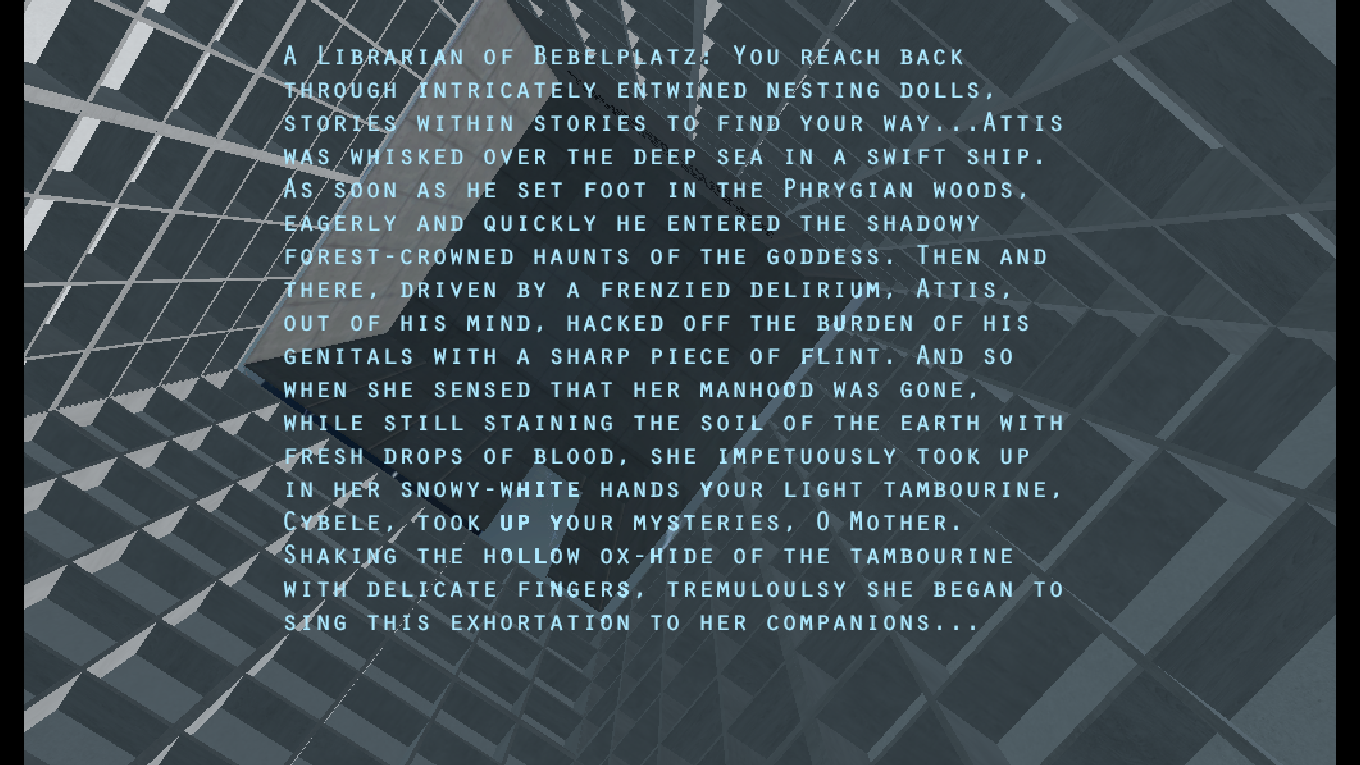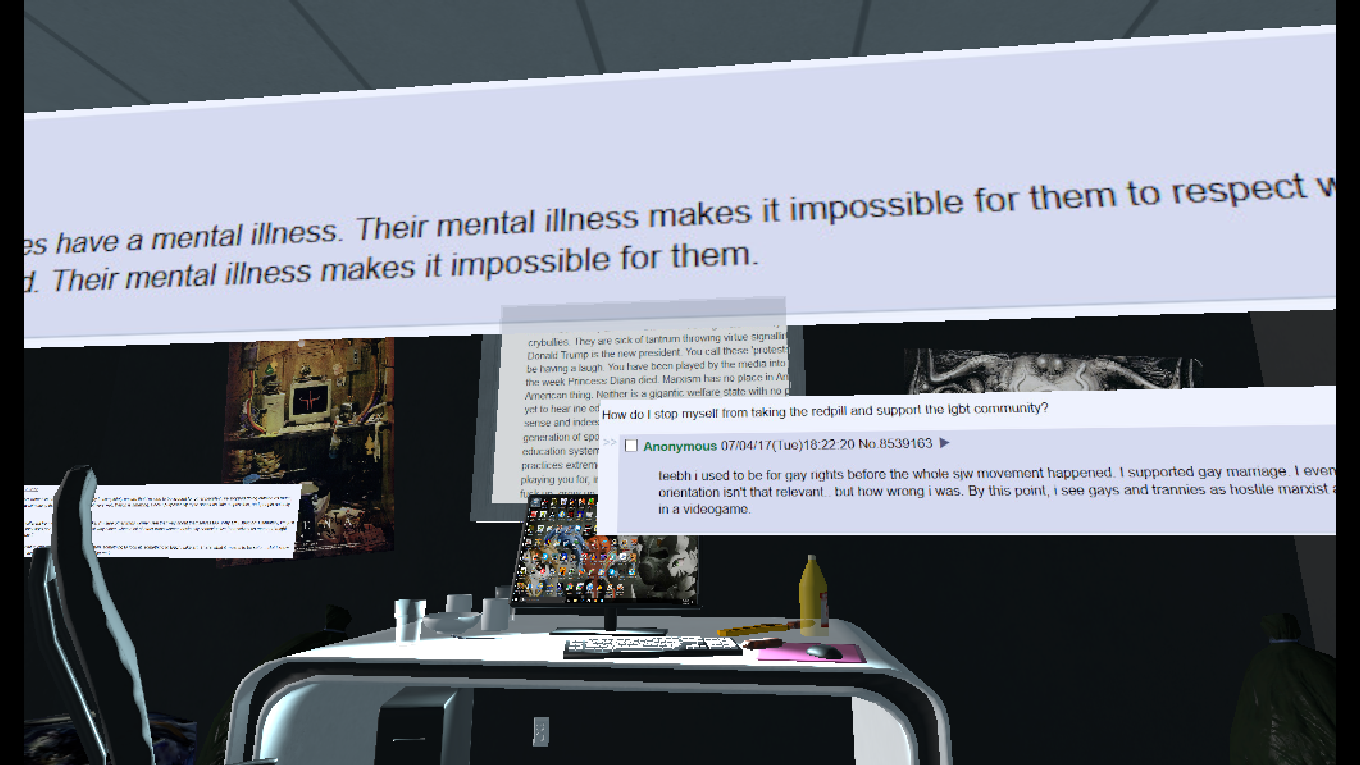Ineffable Glossolalia
Nilson Caroll
Recently installed as part of Porpentine’s Dire Jank show at apexart, Tabitha Nikolai’s Ineffable Glossolalia is a brief 3D experience composed of what its title promises, circling something inexpressible in a not yet known language. In the piece, Nikolai explores the 3D software space of the Unity game engine using text collage to critique transgender space and experience. Players navigate a seemingly familiar labyrinth of mismatched and broken 3D assets through a first-person perspective as jarring text lingers and vanishes onscreen like fleeting nodes of thought.
In Nikolai’s own words, “Because the existence of subjects like me has long been brutally suppressed, I lack the vocabulary to coherently speak my truth, and so I reach into myth, and neologisms, and into ruptures where cultural mores have lapsed and something akin to me can be glimpsed.”¹

The word “glimpsed” is important, as the work feels like a glimpse, a slice of a much larger, almost too large, unwieldy picture. But Nikolai nobly pushes forward, trudging through dense game engine code toward meaning. Inspired by Borges’ short story “The Library of Babel,” disparate quotes are superimposed onscreen as the player wanders through contorted but familiar interiors (a library, a hospital, a warehouse), and warnings from “degenerate” artist Max Beckmann blur into difficult, blunt questions from electronic music duo Crystal Castles. Often, the text is not contrasted enough and blends into the game’s world, forcing the viewer to maneuver the camera to find a blank patch to hover over. Nothing here is completely legible.

One of the most arresting areas in the labyrinth of text is a room designed like a suburban bedroom, with clips of text ripped from the internet and placed haphazardly about in the 3D space. It’s a violent collage that enacts the frenzy of words written on Facebook and 4chan, hurtful words, conservative screeds. These quotes are backed by video game posters on the walls, an open desktop, and a candy bar. This is a vulnerable bedroom experience, a private headspace made public, and it visualizes a confrontation between the ease of access internet users have to public forums and the private matters they contain. One of the Facebook messages is even labelled with a user’s name, presumably a real one, which sharpens the confrontation with a real-world edge.
Of special historical note are quotations relating to the term “Uranian,” an archaic (Victorian) word describing a “third sex.” With this term, Nikolai evokes the sexual research of the German Institut für Sexualwissenschaft which was destroyed by Nazis in 1933. Headed by physician Magnus Hirschfeld, the institute developed key early understandings of transgender health issues, even coining the term “transexualism” before the Nazi German Student Union burned its thousands of research books. This historical context adds another layer of complexity to the work’s exploration of trans experience, specifically, the history of discovering a lost nomenclature for early transgender identities.

There are no firm answers in Ineffable Glossolalia, just expressions, vibrating piles of fleeting thoughts. What follows at the end of the labyrinth interior is revealing: the user exits the structure into a blank, gray field, surrounded by an exterior of false, immobile architecture. The skeletal exterior betrays its interior, exposing it as a constructed, ramshackle environment as the user moves further and further away. Visually poetic, the sky above records what is on screen, skewing and stretching it into patterns, holding on to it briefly before dispersing it like fractured memories.
Head teeming with ideas, the user ultimately is alone, thrust out of the private headspace and back into the impersonal first-person game engine space. It is a final moment of contemplation, but is the world (and user) at peace or constricted with isolation?
*
Nilson Carroll is an MFA candidate at Visual Studies Workshop in Rochester, NY. A barista-poet, Nilson is currently exploring 16mm expanded cinema, video projection performance, and makes queer video game installations.